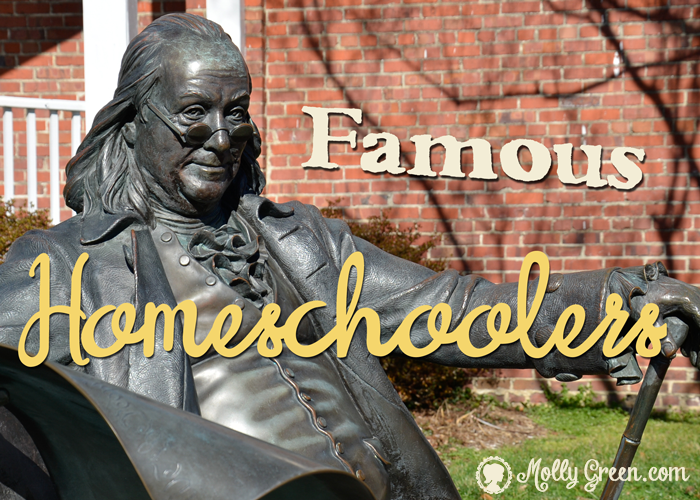By AK Fielding
Merriam-Webster describes homeschool as a way “to teach your children at home instead of sending them to a school.” By this definition alone, Alexander Hamilton, Phillis Wheatley, and Benjamin Franklin were all homeschooled. These individuals were taught at home, through apprenticeships, participation in outdoor activities, and through life experiences. Learning for them occurred anywhere and anytime as it does for today’s homeschooler.
Consider for example Alexander Hamilton who, as a youth, learned the French language and mathematics from his mother at home and at his mother’s general store. His father abandoned the family and his mother died when Hamilton was about 13 years old. To support himself, he worked as an apprentice in a merchant shop and gained the business acumen for which he is still regarded. Despite all the setbacks, Hamilton continued to pursue his education. He was a voracious reader and a passionate writer. Indeed, it was his homeschool education that brought him out of the islands and helped him gain admission to King’s College in America. He worked with the same hunger while in college until the Revolutionary War cut short his aspirations. Nonetheless, Hamilton found himself at the brink of world-changing events and became elemental in the fight for liberty. His contributions to the Federalist in support of the United States Constitution and capitalism all contributed in the birth of the new Republic.
Phillis Wheatley was taken as a young slave for a prominent New England family. The Wheatleys noticed her precociousness and heartfelt desire to learn and began to teach her at home. In the eighteenth century, girls seldom acquired the same kind of education as boys. The idea of a slave getting any form of education at all was even more unthinkable. For Wheatley, it was a life-changing event as she accepted Christ in her life and worked with speed on the education that was provided by the Wheatley family. She soon mastered English, Greek, and Latin, and was already writing beautiful poems before the beginning of the Revolutionary War. In 1773, Wheatley published Poems on Various Subjects, Religious and Moral. Her book was groundbreaking because it was the first book to be published by an African American woman in the United States. Wheatley opened the door for other African American women to receive an education regardless of their position in society.
Who can forget Benjamin Franklin? Franklin had minimal formal education but he possessed a mind ripe for learning. Curious by nature, Franklin was self-taught and read widely on various subjects. He lived through poverty, but remained hard working, determined, and enterprising. After apprenticing for his older brother as a printer, Franklin worked in publishing himself. He owned a book store, wrote, published, and printed various publications. His Poor Richard’s Almanack was published in 1732 and quickly became popular and gained a large readership. Franklin was also an inventor and experimented with electricity, invented the Franklin stove, and bifocals. At the approach of the Revolutionary Era, Franklin helped the colonies become one nation by signing the “Declaration of Independence.” His service to the nation as a diplomat, delegate, and statesman helped form the United States of America.
The contributions made by these individuals to our nation are immense and to think … they all began as homeschoolers. Their lives offer us lessons on the importance of teaching children to develop a love for learning over “education” in a school room. The lack of formal education did not hinder their zest for learning but enhanced it more. Indeed, their dire circumstances pushed them to make choices that helped build character and gave them the gumption to pursue their dreams.
As a historian of the Revolutionary Era and the Early Republic, I am always fascinated with the people who lived during these periods of American history. My work is a reflection of their lives and times. When I was researching the documents of the Founding Generation for my latest series of books, A Little Book of Revolutionary Quotes, I noticed that many of the individuals from the period did not have formal educations but were self-taught and homeschooled. I have compiled a mini biography of these personalities in my upcoming series of books. Please check them out if you are looking for more information on historical homeschoolers.
AK Fielding is a historian, artist, writer, illustrator, and homeschool educator. Her articles on American history have appeared on the Journal of the American Revolution, Illinois Heritage Magazine, Hoosier Heritage Magazine, new media publications, and her blog. Her art has appeared in galleries and national and international publications. For more information about her art and books on American history, please visit: http://trehanstreasures.com/.





